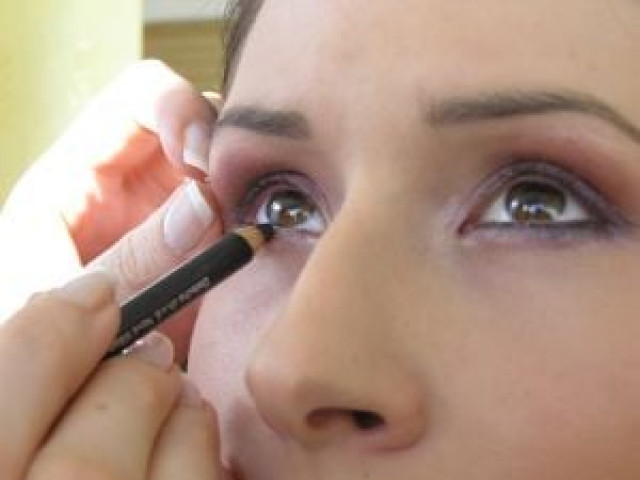Technical education: ‘Beautician course most sought after’
Other Idara-e-Taleem-o-Agahi skills programmes include tailoring, embroidery, Auto-CAD and plumbing.

Guddi Baji, the beautician’s programme, has attracted the most applicants to Idara-e-Taleem-o-Aagahi’s (ITA) Technical Vocational and Educational Programme (TVEP) since its inception in 2010.
Guddi Baji is a 3-month course that trains young girl in grooming skills. An initiative of the ITA, Technical Education and Vocational Training Authority (TEVTA) and Uni-Lever Pakistan Limited (UPL), the Guddi Baji programme certified as many 100 beauticians in June, also known as Guddi Bajis upon completion of the course.
Arshia Khursheed, the Skills and Livelihood programme manager at the ITA, said the program was the most sought after amongst all TVEP programmes.
Having trainee 500 girls in seven districts of the Punjab, the TVEP is set to expand to other districts.
“The graduates are ...under a three-year contract with the UPL to sell their products in their areas. They also receive incentives based on their sales performance,” she said.
Khursheed said Guddi Baji began as a pilot project in Lahore and received an overwhelming response. This, she said, encouraged the ITA to expand its TVEP to Lodhran, Kasur, Bahawalpur, Faisalabad, Chiniot and Multan districts.
She said the ITA had signed a memorandum of understanding with the School Education Department and TEVTA in 2010 and launched a Learning and Livelihood Programme. Under this programme, she said, government schools buildings were available for vocational training in the afternoons.
“The buildings are not in use after 2pm and we aim at utilising them as community learning centres,” she said.
Khursheed said government’s response in this regard had been ‘very encouraging’. The ITA has established more than 20 training labs in government schools, she said.
In addition to the Guddi Baji programme, in July the TVEP introduced several other three-month courses including beautician and domestic tailoring course, hand and machine embroidery, auto CAD, plumbing, masonry and mechanical and electrical technician. The ITA charges a nominal fee for these programmes.
“These programmes are called self-sustained programmes,” Khursheed said, adding that the graduates of these courses are given a TEVTA certification upon completion.
“Our beautician course sells like hot cakes contrary to our apprehensions about it earlier,” she said.
She believes the programme was popular owing to an inclination among girls towards personal grooming.
The fee for a beautician’s course is Rs1,500. The domestic tailoring course costs Rs1,200 and the auto CAD course (currently only available in Rahim Yar Khan) costs Rs2,500.
However, Khursheed says concessions are available to both men and women between 15 and 30 years of age.
As many as 966 trainees are currently enrolled across seven districts. Another 1,000 are awaiting enrolment. Khursheed said the trainees are enrolled keeping in mind that each group is handled and taught properly. The average size of each batch ranges from 25-30 trainees.
The TVEP is using 30 trainers, each one of them nominated by TEVTA.
Uzma Qamar, a 20-year-old widow, is a trainer in the beautician course in Ahmadpur, some 50 km from Bahawalpur and also runs her own beauty parlour.
Speaking to The Express Tribune, Qamar said she had received training from a local beauty parlour and later at TEVTA. She teaches a class of 25, three hours everyday at the Government Primary School Ahmadpur and is paid Rs12,000, which she says is almost thrice as much as she was paid while teaching at TEVTA. She claims despite TEVTA offering the same courses, there was a greater turnout at the classes conducted by the TVEP.
“There is better monitoring and greater value for money here,” she says.
The TVEP is expected to become operational in Sahiwal and Rawalpindi districts by next week. Future plans include expansion to the Khyber-Pakhtunkhwa and Sindh in 2013.
Khursheed said the availability of trainers and transportation of training equipment to learning centres in the rural areas were among the biggest challenges this year.
“We are now working on recruiting girls trained in our programmes as trainers in their areas instead of bringing in trainers from far off areas,” Khursheed said.
Published in The Express Tribune, August 7th, 2012.


















COMMENTS
Comments are moderated and generally will be posted if they are on-topic and not abusive.
For more information, please see our Comments FAQ